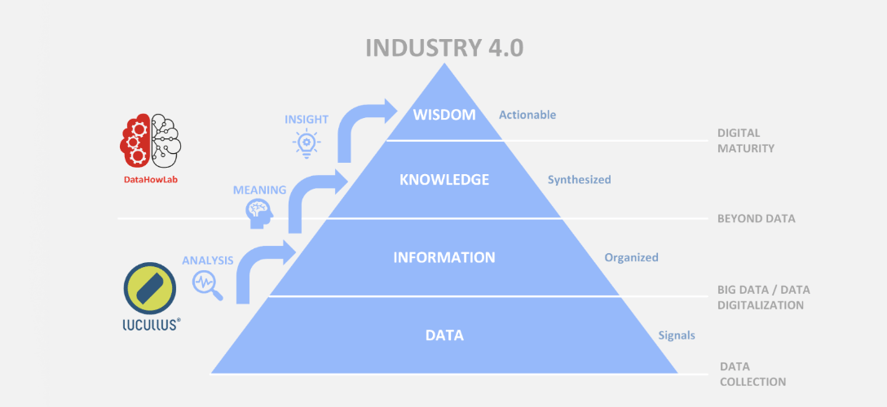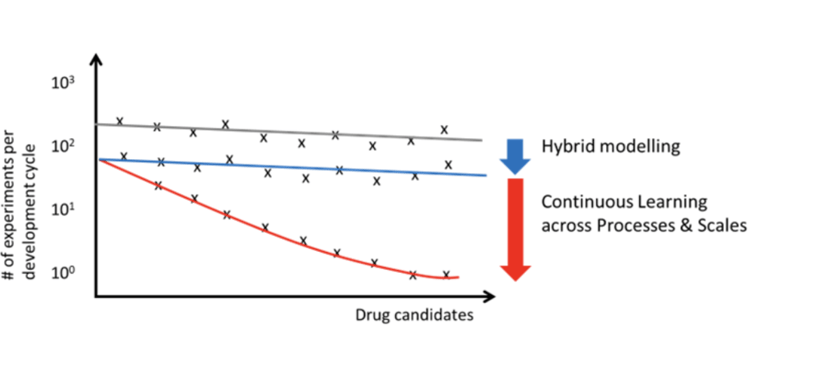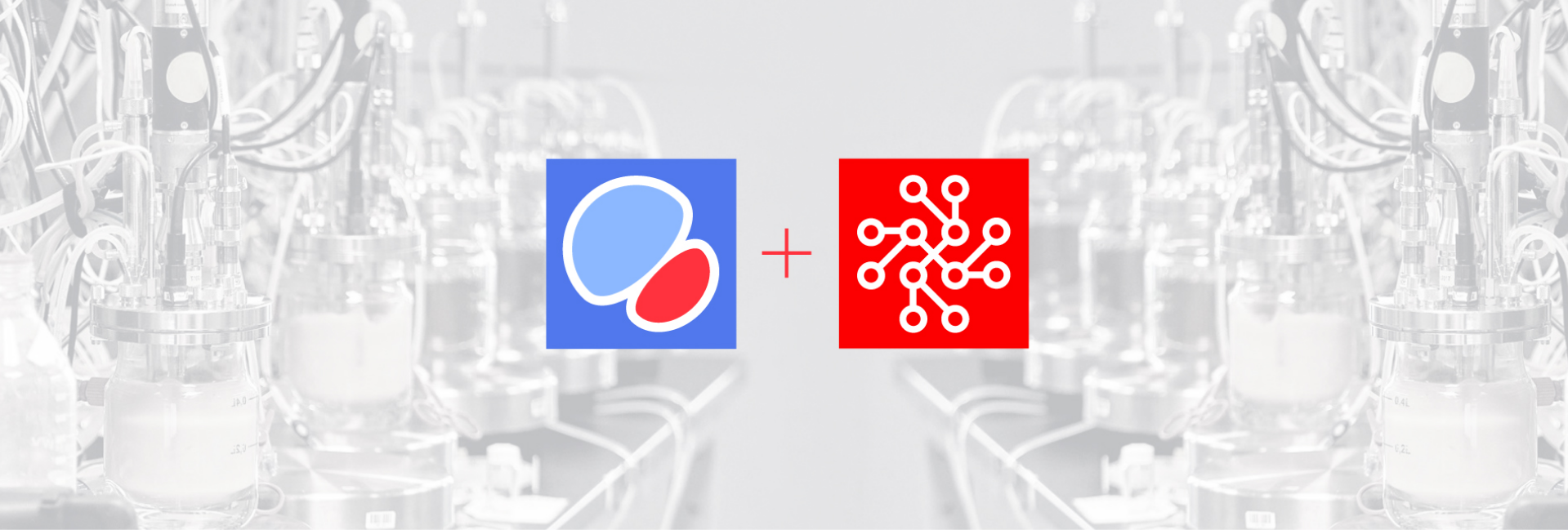
DataHow AG
DataHow AG is a spin-off company from ETH Zurich that emerged in 2017 from the research group of Prof. Morbidelli based on the activities of Dr. Alessandro Butté, Dr. Michael Sokolov, and Dr. Fabian Feidl. The company is specialized in data analytics and process modeling with a particular focus on the biopharmaceutical and chemical domains. DataHow offers digital solutions and consulting for process screening, monitoring, optimization, control, and scale-up with the goal to reduce the effort, risks, and costs in process development and manufacturing as well as gaining a deeper understanding of the complex processes.
The value of advanced analytics & hybrid models
Formalized process knowledge ranging from simple trends through interdependencies of process variables to process models and systems of models provide the structural framework of DataHow’s technology. Within this backbone DataHow embeds cutting-edge machine learning solutions to unveil and integrate the versatile information hidden in the big process data. This hybridization yields powerful process models which are tailored to the specific needs at different stages of process development and manufacturing. Such models require less experiments for training compared to conventional DoE-based approaches and have a much stronger capability of extracting new process knowledge and finding optimal process operation routes. The ultimate goal of such models is to support decision-making and process automation. In particular, cloud solutions can help the model to compare the current process with all available process history, inside and, when possible, outside the company. At the same time, machine learning tools can be trained not only to predict the process but also to take decisions (the so-called reinforced learning), for instance for process control and global optimization purposes.

Benefits of industry
Bioprocessing 4.0 production concepts generate huge amounts of process data and thus heavily rely on efficient data management to allow real-time monitoring and process control. It is estimated that data scientists spend 80% of their time gathering and organizing the data. Lucullus® enables the complete and automated collection and organization of bioprocess data across online sensors, controllers, at-line analytics and metadata. Thus, Lucullus greatly reduces the data collection and organizational efforts for scientists. By combining Lucullus® and the DataHowLab, data analysis around bioprocesses is brought to a new level, simplifying and automating the creation of hybrid models, able to continuously learn from all historical and new process data. In the first phase of collaboration, process information from historic processes will be transferred from Lucullus® to the DataHowLab to predict new parameter setpoints with hybrid modeling. The optimized process parameters are imported back into Lucullus® for faster and simpler process development cycles. In a second phase, not only process information from historic processes but also real-time data will be used for on-line forecasting, monitoring, and alarming. By combining the two tools, complex process optimizations with minimal experimental effort will be becoming reality.
Learn more about DataHow
Learn more about Lucullus®










